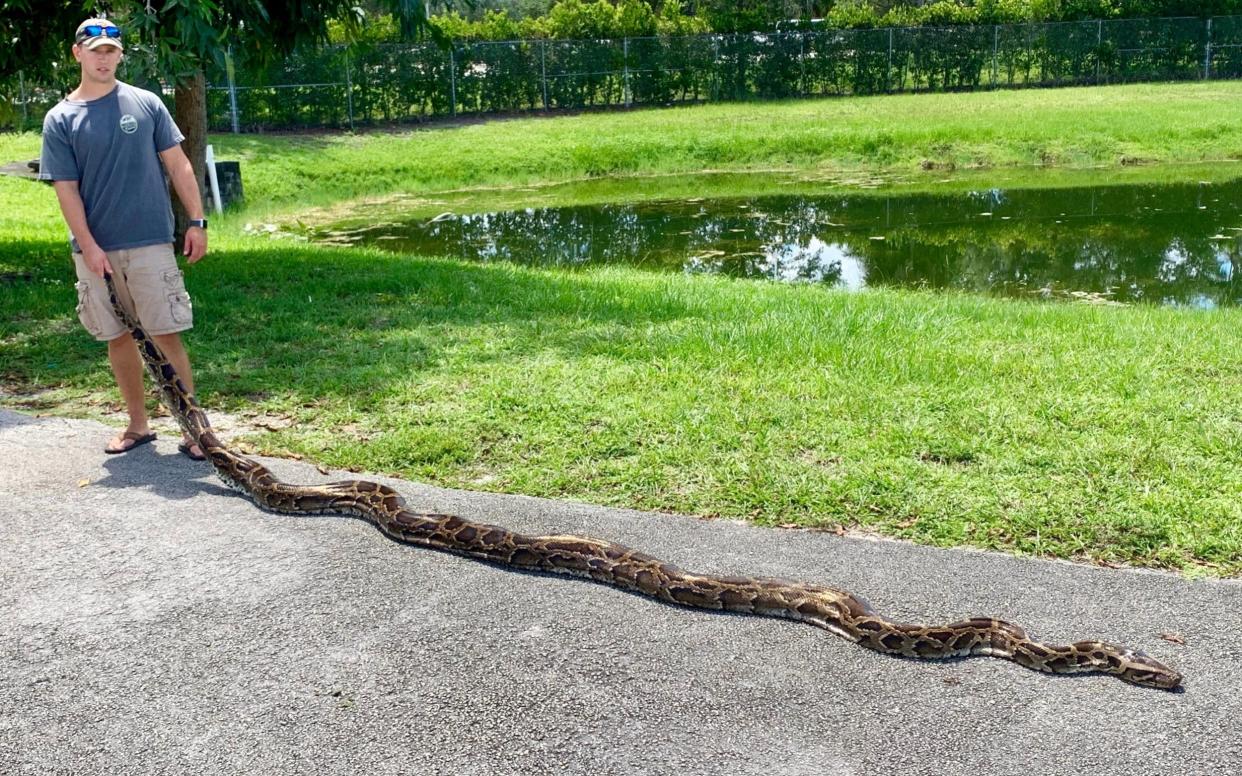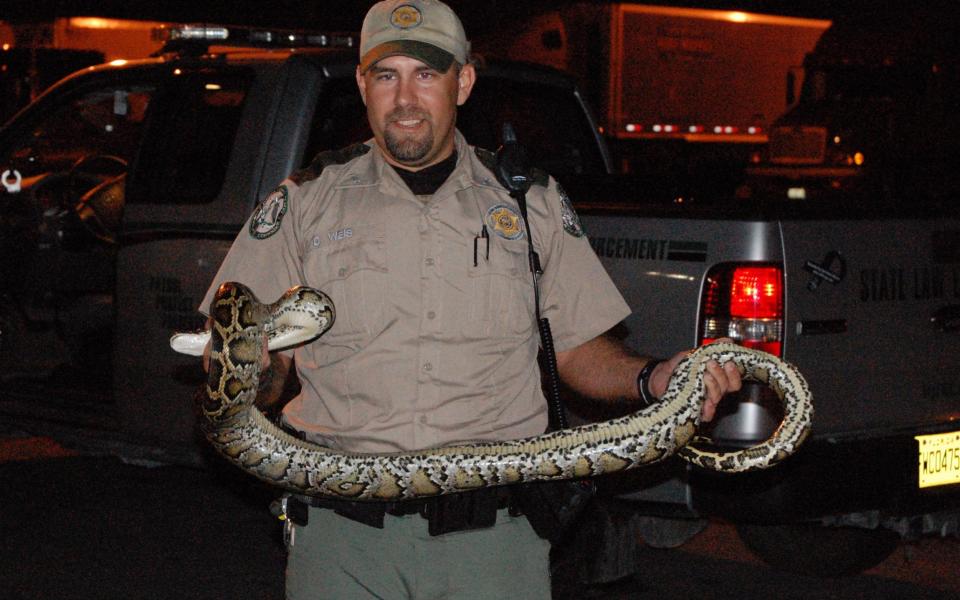Florida considers putting python on the menu as constrictors pose threat to native wildlife

People in Florida may have an unusual delicacy to sample, pending a state review of whether they are safe for consumption, CNN reported on Sunday: Burmese pythons.
Burmese pythons are an invasive species in the Florida everglades. They were first discovered in the wild in the 1980s, when it is believed a pet owner released one.
Since then, the massive constrictors have established themselves at the top of the local food chain, decimating the population of rabbits, racoons, possums and other small mammals.
The Florida Fish and Wildlife Conservation Commission (FWC) is now working with the Florida Department of Health to establish whether the python population contains a safe level of mercury.
If levels are safe for consumption, the FWC hopes that the snakes will become a part of the local diet, aiding population control efforts.
"It is early on in the process for the mercury study. We are currently in the tissue collection stage of the project, and Covid has pushed our timeline back a bit," wildlife commission spokeswoman Susan Neel told CNN. "The plan is to have most of these samples come from pythons that are caught by our contractor program."
The FWC already encourages residents to remove and humanely kill any python they come across through The Python Elimination Program. People are also asked to report sightings to authorities.

This contractor programme is also run by the South Florida Water Management District, who are helping to fund the mercury study. Under this programme, which began in March 2017, over 6,000 pythons have been removed from the ecosystem.
The purpose of this latest study is to provide "consumption advisories for Burmese pythons in South Florida to better inform the public," Ms Neel said.
However, Mike Kirkland, the Python Elimination Program manager, told CNN that he does not expect pythons to be safe to consume, as apex predators, those at the top of the food chain, often contain unsafe levels of mercury.
"Mercury bioaccumulates in the environment and you will find high levels of mercury at the top of the food chain where pythons have unfortunately positioned themselves," he said.
"We expect the results are going to discourage the public from consuming pythons, but if we can determine that they are safe to eat, that would be very helpful to control their population," he added.
Python meat is considered somewhat of a delicacy. The Telegraph found numerous online outlets where it is for sale, with American Burmese python meat costing $80 (£60) for one pound (0.5kg). It is often consumed in jerky and sausage form.
In 2017, Gordon Ramsay and his son killed and consumed a Burmese python in Florida as part of his competitive-cooking TV show, The F Word with Gordon Ramsay.

